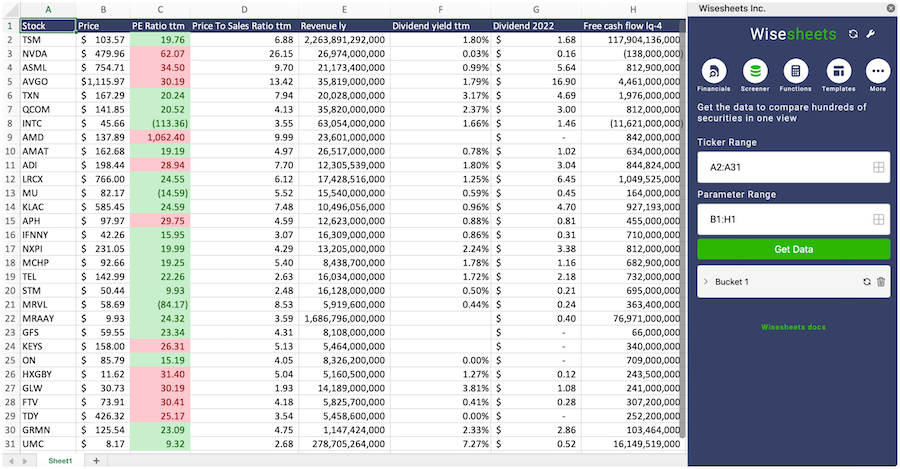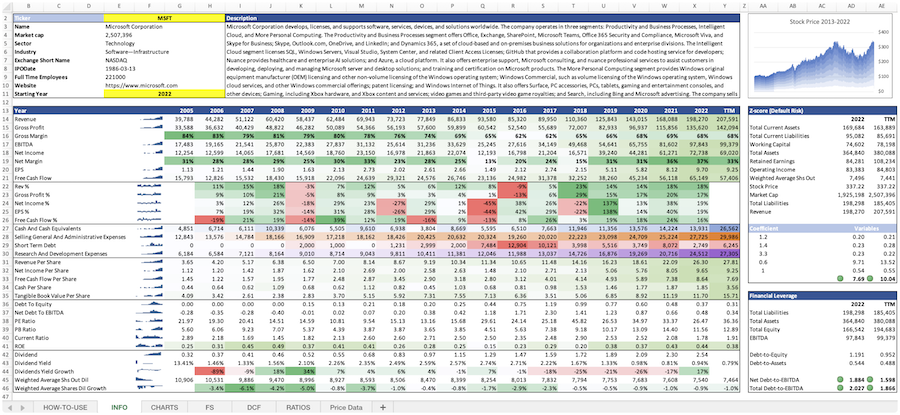TIM S.A.
TIM.WA
Price:
$50.5
Market Cap:
$1.11B
TIM S.A. distributes electro technical products to business and individual customers in Poland. Its products include electrical apparatus, sockets and connectors, light sources, cables and wires, cable routing elements, switchgears and enclosures, power tools and meters, house and garden products, office supplies, light fixtures, connecting accessories, protective and health and safety clothing, consumer electronics, ventilation and heating products, and lightning protection products; intercoms and bells, photovoltaics, and pneumatics; IT and GSM products; hobbies, health, and tourism products; and electronic home appliances, as well as alarms, monitoring, and communication products. The com...[Read more]
Industry
Technology Distributors
IPO Date
2000-11-17
Stock Exchange
WSE
Ticker
TIM.WA
PE Ratio
[20.95]
ROE
[19.06%]
Current Ratio
[1.60]
Dividend Yield
[0%]
Enterprise Value
[1.24B]
Dividend History
The Current Ratio as of December 2025 (TTM) for TIM S.A. (TIM.WA) is 1.60
According to TIM S.A.’s latest financial reports and current stock price. The company's current Current Ratio is 1.60. This represents a change of -0.67% compared to the average of 1.61 of the last 4 quarters.
TIM S.A. (TIM.WA) Historical Current Ratio (quarterly & annually)
How has TIM.WA Current Ratio performed in the past?
The mean historical Current Ratio of TIM S.A. over the last ten years is 1.53. The current 1.60 Current Ratio has changed 10.36% with respect to the historical average. Over the past ten years (40 quarters), TIM.WA's Current Ratio was at its highest in in the June 2014 quarter at 2.09. The Current Ratio was at its lowest in in the March 2020 quarter at 1.30.
Average
1.53
Median
1.56
Minimum
1.33
Maximum
1.85
TIM S.A. (TIM.WA) Current Ratio by Quarter and Year
Discovering the peaks and valleys of TIM S.A. Current Ratio, unveiling quarterly and yearly fluctuations to gain insights into the company’s financial performance and market dynamics, offering valuable data for investors and analysts alike.
Maximum Annual Increase = 14.22%
Maximum Annual Current Ratio = 1.85
Minimum Annual Increase = -15.19%
Minimum Annual Current Ratio = 1.33
| Year | Current Ratio | Change |
|---|---|---|
| 2023 | 1.60 | 2.01% |
| 2022 | 1.57 | 0.27% |
| 2021 | 1.56 | 14.22% |
| 2020 | 1.37 | 2.98% |
| 2019 | 1.33 | -6.47% |
| 2018 | 1.42 | -3.30% |
| 2017 | 1.47 | -5.36% |
| 2016 | 1.55 | -1.07% |
| 2015 | 1.57 | -15.19% |
| 2014 | 1.85 | -1.72% |
TIM S.A. (TIM.WA) Average Current Ratio
How has TIM.WA Current Ratio performed in the past?
The current Current Ratio of TIM S.A. (TIM.WA) is greater than its 3-year, greater than its 5-year, and greater than its 10-year historical averages
3-year avg
1.58
5-year avg
1.49
10-year avg
1.53
TIM S.A. (TIM.WA) Current Ratio vs. Peers
How is TIM.WA’s Current Ratio compared to its peers?
TIM S.A.’s Current Ratio is greater than R22 S.a. (1.40), less than Berling S.A. (4.57), less than K2 Holding S.A. (4.49), less than PunkPirates S.A. (2.07), less than Comarch S.A. (1.89),
| Company | Current Ratio | Market cap |
|---|---|---|
| 1.40 | $1.05B | |
| 4.57 | $74.85M | |
| 4.49 | $83.58M | |
| 2.07 | $17.06M | |
| 1.89 | $2.69B |
Build a custom stock screener for TIM S.A. (TIM.WA) and other stocks
One of the best ways to find valuable stocks to invest in is to build a custom made screener in your Excel or Google Sheets spreadsheet. This allows you to compare thousands of companies like TIM S.A. using the financials and key metrics that matter to you in a single view.
The easiest way to set this up is to use the Wisesheets add-on and set your spreadsheet like this:
Covering all these metrics from financial, data, dividend data, key metrics and more you can get all the data you want for over 50+ exchanges worldwide.
Get your free trial here.
TIM S.A. (TIM.WA) and other stocks custom spreadsheet templates
The easiest way to analyze a company like TIM S.A. or any others is to create a spreadsheet model that automatically retrieves all of the stock data you need.
Using Wisesheets you can set up a spreadsheet model like this with simple spreadsheet formulas. If you change the ticker you can get all of the data automatically updated for you.
Whether you need live data, historical price data, financials, dividend data, key metrics, analyst estimates, or anything else...Wisesheets has you covered.
Frequently asked questions❓
What is the Current Ratio?
How can you use the Current Ratio?
What is TIM S.A.'s Current Ratio?
How is the Current Ratio calculated for TIM S.A. (TIM.WA)?
What is the highest Current Ratio for TIM S.A. (TIM.WA)?
What is the 3-year average Current Ratio for TIM S.A. (TIM.WA)?
What is the 5-year average Current Ratio for TIM S.A. (TIM.WA)?
How does the current Current Ratio for TIM S.A. (TIM.WA) compare to its historical average?

